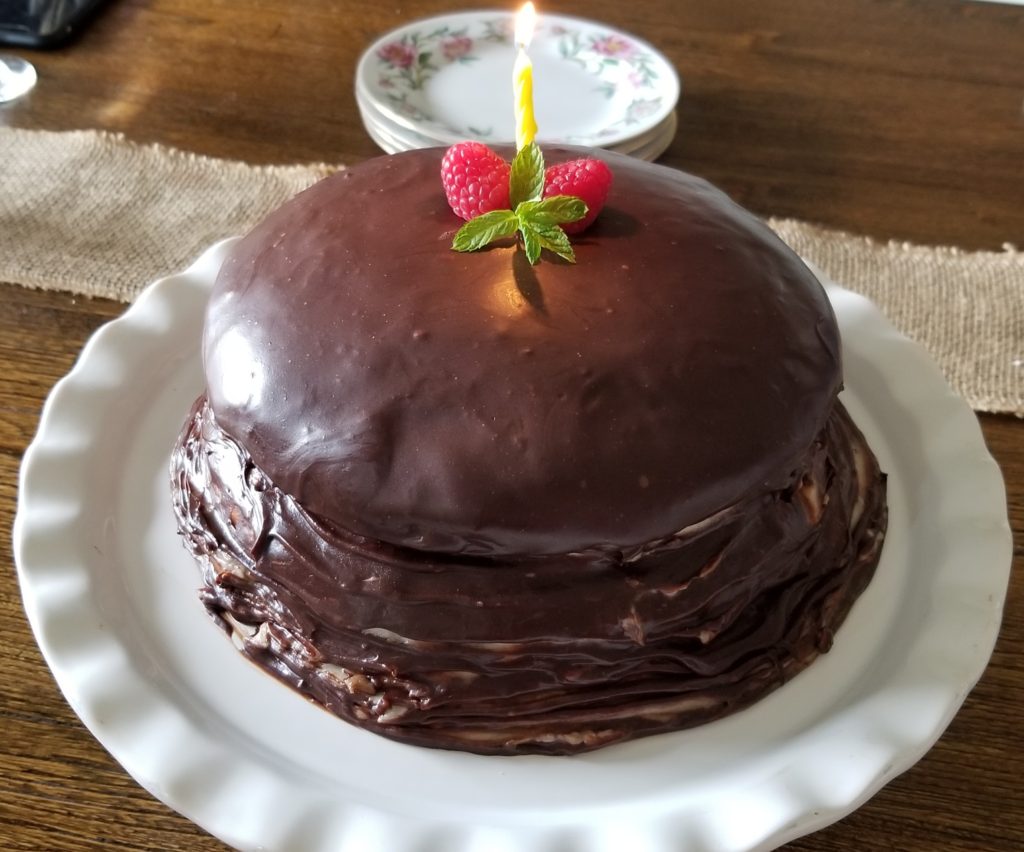Last week I was doing a day of procedures. It was a great day, taking care of problems for a bunch of my patients and enjoying the day with a fantastic team of nurses and the anesthesia team. We were wrapping up a successful day and I was finishing my notes at the nurse’s station. I closed the last one and stood up to take off my scrubs. Now, this was fine because I had another outfit on under my scrubs. Since COVID, I never wear scrubs to and from the house. You’re not supposed to anyway when it comes to going to the OR, but I definitely don’t now, no matter what part of the hospital I’m in. I show up dressed in leggings and a top, put on fresh scrubs over that base layer, and take off the scrubs and leave them and any germs in the hamper at the end of the day. Then I throw a coat or sweater over my workout-style outfit and head out.
So I’m “undressing” at the nurse’s station and one of them mentions that I’ve lost weight (I haven’t, but they’ve not seen me in anything but loose scrubs). That brought us to talking about my weight loss story and a couple of the nurses mentioned that they needed help with getting their weight off. I wrote down the URL for the blog and explained how to find me on YouTube and put on my coat. As I picked up my bag and got headed for the door, one of the nurses said that she guessed she’d have to start eating a lot better if she was going to lose weight.
I turned back around.
(I had to say something!)
 Presto! Doctor to coach…
Presto! Doctor to coach…
You know, it’s really common taught that in order to lose weight we have to “eat right” and exercise. Your doctor tells you that, everywhere you look there’s a diet to teach you the”right” way to eat to lose weight, and heaven help you if you’re not a gym rat or marathoner because you can’t possibly lose weight if you don’t exercise. This thinking is so common that every time I talk to one of my patients about weight the first thing they say is that they need to eat “better”.
But when we tell people to “eat right”, we don’t explain what that means. One big problem is that there’s not even agreement about what that means, and most doctors don’t have a lot of training in nutrition at all, much less in weight loss nutrition. So we believe this vague thought, that we have to eat “better” and we have no idea of what that means.
If you have no target, you’ll never hit it.

So the first step is to define what you mean when you say “eat right”. And that’s where it gets sticky. We’ve thought for so long that there’s a magical perfect diet out there that we actually believe it. If we could just find the one right diet for us, the weight will melt away and we will be thin and daisies will sprout at our feet and rainbows burst from our hearts like a Care Bear (ok, I’m dating myself).
That’s myth number one: Diet matters. There is no one perfect diet for you that will solve your weight battle. Any eating style or diet you choose will work as long as you stay with it. And that’s where the problem lies: Most of us choose diets that we won’t stick with for the long term. We want a quick fix, get the weight off, and we’ll figure out how we keep it off later.
But that doesn’t work.
We lose some, get sick of the diet, go off the plan and gain back the weight we lost and gather a few extra pounds along the way back up the scale. Then we say that the diet didn’t work. What happened was that you stopped doing the diet. This is why I don’t prescribe diets. When I work with a client on an eating plan, we build one that she can live with. It has to be something that you will do for the long term. You can tweak it over time and you’re always free to change your mind or plan a time off the plan (birthday cake, anyone?). But no diets!

You know how you know that the diet doesn’t matter? Because when you look at all the options out there (keto, plant-based, macrobiotic, vegetarian, juicing, intermittent fasting), there’s someone who has been successful in losing weight on it. There’s also someone who did it and gained the weight right back or says it didn’t work for them. It’s not the diet. It’s whether you are willing to stick to your plan when you’d rather eat a bag of cookies or drown yourself in a bowl of ice cream. It’s whether you’re going to eat the meal you planned or chuck it in favor of the drive-through because you’re too tired to cook. It’s whether you’re going to drink a few glasses of wine instead of the one glass on your plan because your day at work was chaos and the kids are on your one last remaining nerve. It’s whether you know how to feel your feelings or whether you choose to eat your feelings. It’s not the diet.
The first myth of weight loss is that the diet matters. Are there some ways of eating that may make weight loss easier for you? Sure. But the eating plan you develop and stick to is the one that is going to work. I help my clients design a plan that they can love and we adjust it as needed. I have a client who lost weight eating fast food several times a week. You start where you are and make adjustments until you get where you want to go. That works!

You might be saying, “You make it sound easy, but I still don’t know what to do to get this weight off!” I know it’s not easy. It’s simple, but making it work after years of dieting isn’t natural or easy. Having a coach to walk with you helps! I can help you get started. Set up a mini-session with me by emailing drandreachristianparks@gmail.com and let me show you how weight loss coaching can help you get to permanent weight loss. You can do it!
Here’s your video help for the week! There’s an intro video and week one of Weight Loss Myths out now, so two videos this week to get you on your way…
